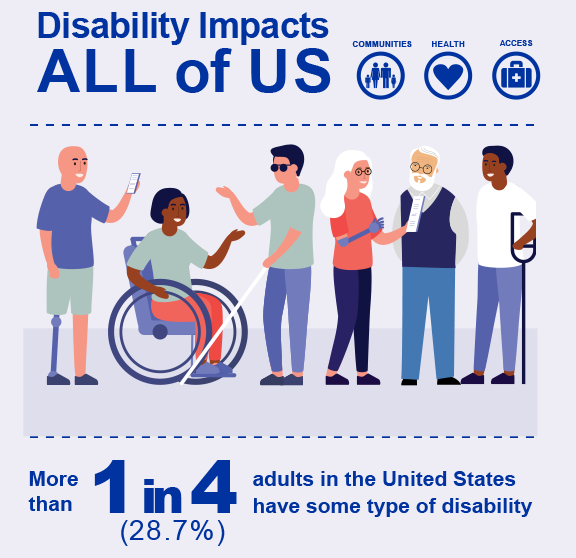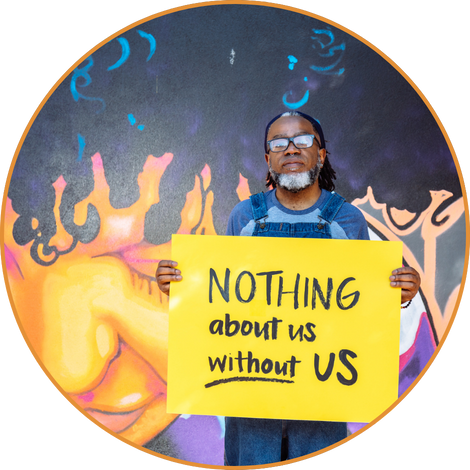
View the full graphic here.
Over 65 million U.S. adults live with a disability, meaning one in four patients has a disability, whether disclosed or not.
Screening For All is an initiative funded by the Centers for Disease Control and Prevention (CDC)'s National Center on Birth Defects and Developmental Disabilities (NCBDDD) to address the significant barriers people with disabilities face in accessing preventive health screenings. Developed by MCD Global Health, this project provides health care practitioners with evidence-based tools and resources to make preventive health screenings accessible to all patients.
Disparities
- People with disabilities face multiple barriers to preventive care at individual, interpersonal, and systemic levels.
- People with disabilities are 3 times more likely to report unmet health care needs.
- Existing U.S. Preventive Services Task Force (USPSTF) screening guidelines do not address disability-specific considerations, such as accommodations or risk factors that disproportionately affect disabled people.
- Many health care professionals do not receive adequate training in disability-inclusive care.

Our Approach
Following the principle “nothing about us without us,” we developed new resources through a community-led process. These resources support practitioner education in disability-inclusive care as well as patient health education. Our Technical Advisory Group of people with lived disability experiences guided the identification of barriers and development of solutions, working alongside clinical experts and comprehensive research review.
Evidence Base
Our work is informed by the Agency for Healthcare Research and Quality (AHRQ)'s comprehensive literature review, entitled, Healthcare Delivery of Clinical Preventive Services for People with Disabilities. For this project, we focused on preventive health screenings recommended by the USPSTF that have an A or B grade recommendation.
Partnership Information
This program is supported by the U.S. CDC of the U.S. Department of Health and Human Services (HHS) as part of a financial assistance award totaling $499,809 with 100% funded by CDC/HHS. The contents are those of the author(s) and do not necessarily represent the official views of, nor an endorsement, by CDC/HHS, or the U.S. Government.
Contact
Contact us for feedback, questions, or additions to the resource library:
- Email: nationalpartners@mcd.org
- Call: +1-207-622-7566 (ext. 2190)